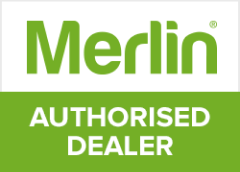Garage doors are not only a practical necessity but also a significant aesthetic feature of your home’s exterior. While they serve the purpose of protecting your vehicles and belongings, they are also exposed to the elements, making them susceptible to rust. Rust not only affects the appearance of your garage door but can also compromise its functionality over time. In this article, we will explore some valuable tips and tricks to keep your garage doors rust-free and in top condition.
Understanding the Causes of Rust
Moisture and Humidity
High levels of moisture and humidity can accelerate rust formation on garage doors. These conditions create an ideal environment for rust to develop, especially on metal surfaces.
Exposure to the Elements
Garage doors are constantly exposed to the elements, including rain, snow, and harsh sunlight. This exposure can lead to the development of rust over time.
Regular Cleaning and Maintenance
1. Gather the Necessary Supplies
Before you start cleaning your garage door, gather the necessary supplies, including mild soap, water, a soft brush, and a bucket.
2. Cleaning the Garage Door
Begin by gently scrubbing the surface of the garage door with the soapy water mixture. Pay close attention to any areas where dirt, grime, or rust may have accumulated.
3. Inspecting for Damage
While cleaning, take the opportunity to inspect the door for any signs of rust or damage. Identifying and addressing issues early can prevent further deterioration.
Applying a Rust Inhibitor
Choosing the Right Rust Inhibitor
Select a high-quality rust inhibitor that is suitable for your garage door’s material. Consult with a professional if you’re unsure about the best product for your needs.
Applying the Rust Inhibitor
Follow the manufacturer’s instructions carefully to apply the rust inhibitor effectively. Ensure that you cover all susceptible areas to provide thorough protection.
Repainting Your Garage Door
Preparing the Surface
Before repainting, remove any existing paint or rust from the surface of the garage door. Sanding and priming may be necessary for a smooth finish.
Selecting the Paint
Choose a paint specifically designed for outdoor use. High-quality exterior paint will not only protect your door but also enhance its appearance.
Applying a Fresh Coat
Apply a fresh coat of paint to your garage door, covering the entire surface. This will not only protect the door from rust but also give it a new lease on life, visually.
Weatherproofing Your Garage
Sealing Cracks and Gaps
Seal any cracks or gaps in and around the garage door to prevent moisture infiltration. Weatherstripping and caulk can be helpful in this regard.
Installing Weather Stripping
Weather stripping can create a barrier against the elements and further protect your garage door from rust and damage.
Regular Inspections and Maintenance
1. Frequency of Inspections
Make it a habit to regularly inspect your garage door for any signs of rust or damage. A periodic check, ideally once every three to six months, can help catch issues early.
2. Lubricating Moving Parts
To prevent rust on the moving parts of your garage door, lubricate them as recommended by the manufacturer. This will ensure smooth operation and prolong the door’s life.
Additional Tips to Prevent Rust
1. Avoiding Harsh Chemicals
When cleaning your garage door, avoid using abrasive or corrosive chemicals as they can damage the surface and exacerbate rust problems.
2. Cleaning Spills Promptly
If any spills or leaks occur near your garage door, clean them up promptly. Lingering moisture can contribute to rust formation.
Keeping your garage doors rust-free is essential for their longevity and functionality. By understanding the causes of rust and following the provided tips and tricks, you can ensure that your garage doors remain in top condition for years to come.
Regular maintenance, inspections, and protective measures can go a long way in preserving the beauty and functionality of your garage doors.
If you have any problems with your garage door, call the experts at Automatic Garage Solutions on: (02) 9793 3329.







